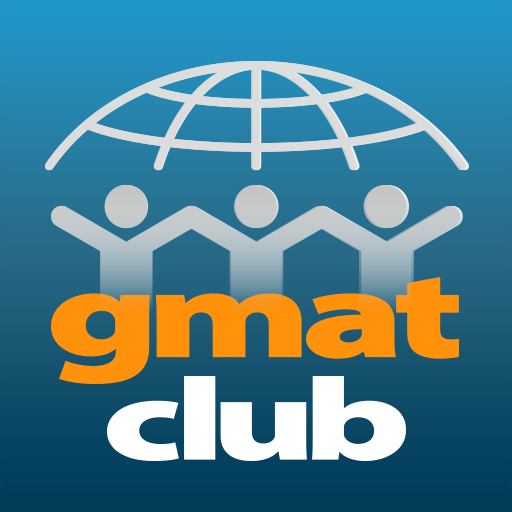
07/10/2023 0 Comments
Breakdown of Average Age for Top US EMBA Programs
Hi everyone, as the first round of EMBA deadlines arrive for most schools, wanted to touch on average age/work experience for each of the top programs. They vary quite a bit. Hoping this might provide some nuance and help you avoid potentially wasted effort.
Wharton: It’s concentrated around people in their 30s: year after year, only 20% of the class is over 40. Also, the only US based program breaking out this stat. Everyone stays in the same hotel every other weekend and I wonder if they are looking to maintain a certain social dynamic by avoiding big age gaps (this might create cliques).
Just this year that number bumped to 25% which makes me wonder if this average went up because they have older candidates doing the “global program” (the new remote option.) Or a philosophical change in general about having older candidates. Only 3% of the class is under 30. But, if you are an employer sponsored candidate, check out the “fellow” option.
Columbia: Many who consider Wharton also consider CBS EMBA. This option is a great one if you are a bit young for an EMBA. One of my clients started this program at age 25, actually, and had completed his online bachelor's degree the previous year – however – he was in fact in a people/program management role at his company. He was promoted 2 or 3 times during the program to director and is now a partner.
CBS doesn’t have a work experience minimum – and I can’t think of another program that doesn’t. It’s a bit of a wild card. This doesn’t mean anyone can get it in of course but they look at how the employer has “vetted” the candidate: are they sponsored? Have they been promoted? What is their track record of achievement? If you are a top performer under that magic 8 years of experience – this is likely a good option.
Yale: The 14 average years of work experience are higher than
Wharton but less than MIT, and the average age is 36. However interestingly they only require seven years of work experience, and it seems as though they are willing to make an exception with that if you have a track record of leadership. Note: The fact that the program is in New Haven Connecticut (logistics not ideal) and meets biweekly means that the majority of the class will be from the Northeast (59%). So make sure that a network from this geography would be valuable to you. It's clear they've put a lot of effort into making sure that 47% of the class are people of color and 44% female. They really emphasize their specialties of asset management, sustainability, and health care.
Booth: The average age is 37 with 13 years of work experience; they don't really give an 80% range so I'm not really sure how tightly clustered things are around that average. But I do know that one of my clients visited Booth he is like 42 or something and he felt somewhat comfortable there and found many others his age.
MIT: Primary reason I am writing this blog is to keep young applicants from applying here. The average age is 41 with 17 years of experience with a minimum of 10. And, having the most experienced EMBA cohort is cornerstone to their marketing. 90%+ are Directors. I recommend against having a “apply for the heck of it, worst they can say is no” approach here if you don’t fit this profile. Why? Because it's the most competitive EMBA program (very hot brand and no GMAT required = tons of applications) AND it’s a huuuuge application; a LOT of both recommendation and essay questions.
If you have 8+ years but less than 10, however, you are a director AND offer a lot of diversity, then you might contact admissions to see if they will make an exception. Note: don’t apply unless you have a B or better in stats and business calculus.
Kellogg: Average age is 39; down from 40. Average work experience is 15 years. 68% are director level or above. This program is less rigorous than Booth, Wharton, and MIT with a monthly Kellogg-Miami option. If you have small children or work long hours, you might find this program more manageable. Note: they have both fall and winter intake, so, frequent deadlines.
Duke: Average age is 34 for the global MBA (class meetings are at various international destinations) and 35 for the Weekend EMBA – interestingly, the required work experience is only 5 years. The Weekend option is monthly so might be a good option for younger applicants, even if they need to travel from outside the area.
NYU-Stern: There are 3 options; NYC; DC and the prestigious TRIUM Global EMBA. For NYC, the average age is 37 with an average of 13 years of work experience. The Stern PT MBA is very popular so it would make sense that less experienced applicants would go for that option. The DC monthly program is very new with no class profile yet posted. Given that there is no “top ranked” PT MBA in DC, I am guessing it might scoop up those applicants and skew younger. For TRIUM, the average age is 40. This is like a more prestigious version of the Duke Global MBA.
Michigan-Ross: The situation here is similar to Kellogg – average age is 40; less rigor, with more emphasis on leadership than quant-heavy subjects. No class breakout between Ann Arbor & Burbank monthly options. Interesting that they include average salary is $180K.
Berkeley-Haas: 80% fall between 33 and 48 and so it seems there is a good deal of variation here with age. Also, a monthly program.
I might even go so far as to say that monthly programs usually skew older than weekly (CBS only) or biweekly (Booth, Kellogg-Evanston, Wharton, NYU in NYC). However, MIT meets every 3 weeks and has the highest average age.
In sum – while age isn’t the only variable, of course, it’s something to factor in. EMBA programs are lockstep and 22 to 24 months – by design. Why? You will get to know your colleagues better this way and have deeper connections. You are paying to acquire a network, and so you want to feel you are surrounded by people who can help you. The fact is, a director probably won’t benefit much from someone with 5 years of work experience, and actually, vice versa. So, the bulk of the cohort needs to be equally yoked so to speak for the program to work.
Having worked for many large MBA prep firms earlier in my career, I am proud to be a boutique provider who only handles 4-5 clients per round. I get to know my clients inside and out, which allows admissions to as well.
Partner with me to significantly increase your chances of being admitted to your top choice MBA program. Complete my contact form to receive CV and profile feedback.


Comments
Leave a comment